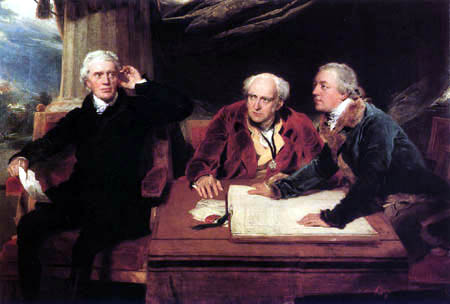
Barings Bank was an English merchant bank based in London, founded by the brothers John and Francis Baring in 1762. Originally based in the wool trade, under Francis Barings' leadership the firm was soon one of the largest commercial banks in London, providing financial services necessary for the rapid growth of international trade.
By the 1830s, Barings found itself overextended in India and the Near East. A recession in France in 1835 caused the bank to suffer losses among its investments there. When word of the bank's reverses in France became public in October, there was a panic among its depositors, and as a result the bank was forced to close its doors on 15 October. The fall of Barings led to the collapse of a dozen public and private banks in London, the worst financial crisis in British history, which in turn brought about the Panic of 1836 in the Confederation of North America. It was only the skillful use of resources by the Bank of England that prevented the total collapse of the country's financial sector. As it was, the government of Lord Thomas Tillotson fell, and a snap election brought a coalition government to power.
Sobel's sources for the fall of Barings Bank are Arthur Watkins' The Baring Crisis of 1835 (London, 1910); and George Andrews' Business Cycles in Nineteenth Century Britain (London, 1959).
IOW Barings Bank remained in business until it collapsed in 1995 after suffering losses of £827 million resulting from poor speculative investments.